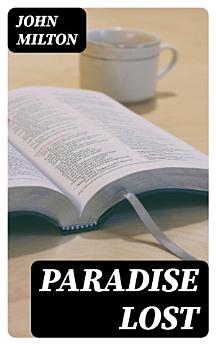Paradise Lost
sept. 2022 · DigiCat
E-book
209
Pages
family_home
Éligible
info
reportLes notes et avis ne sont pas vérifiés. En savoir plus
À propos de cet e-book
John Milton's "Paradise Lost" is an epic poem that meticulously explores the biblical story of the Fall of Man, blending classical literary techniques with profound theological inquiry. Composed in blank verse, this monumental work unfolds through a grand narrative that delves into themes of free will, obedience, and the struggle between good and evil. Rich in allegory and symbolism, Milton employs vivid characterizations of iconic figures such as Satan, Adam, and Eve to convey the complexities of human nature and divine justice, thereby situating his work in the context of the Renaissance's burgeoning interest in individual agency and moral philosophy. John Milton, a prolific writer and staunch advocate for personal liberties, drew from his own experiences of political upheaval and religious turbulence in 17th-century England. Influenced by the Civil War and his subsequent loss of sight, Milton's fervent belief in the role of divine providence and human choice informs the narrative structure and moral underpinnings of "Paradise Lost." His background as a scholar and his deep engagement with both classical and biblical texts lend the poem an intellectual depth that reflects the era's cumulative knowledge. "Paradise Lost" is a must-read for those seeking to encounter a profound meditation on existential questions that resonate throughout time. Milton's deft intertwining of poetic mastery and philosophical inquiry invites readers to reflect on their own beliefs and the human condition, offering a rich tapestry of language and thought that continues to inspire readers, scholars, and theologians alike.
À propos de l'auteur
John Milton (1608–1674) was an English poet, polemicist, man of letters, and civil servant for the Commonwealth of England under Oliver Cromwell. He is best known for his epic poem 'Paradise Lost' (1667), considered one of the greatest works of English literature and a hallmark of the blank verse epic form. Milton's writing is characterized by its grand style, complex syntax, and rich allusions to classical mythology, contemporary religious and political issues, and his own erudite scholarship. Born in London to a prosperous family, Milton was educated at St Paul's School and Christ's College, Cambridge. A proponent of republicanism and a fierce critic of the monarchy, he also authored a number of pamphlets on religious and political subjects, including advocating for the abolition of the Church of England and the justification of the regicide of King Charles I. His later works, written after his blindness around 1652, dealt with themes of sin, redemption, and human understanding, and included not only 'Paradise Lost' but also its sequel 'Paradise Regained' and the tragedy 'Samson Agonistes.' Milton's influence extends beyond literature; his defense of freedom of the press and individual conscience has echoed into modern liberal thought. His literary contributions are immortalized in his profound exploration of the human condition, the complexity of sin and redemption, and the eternal struggle for truth and justice.
Donner une note à cet e-book
Dites-nous ce que vous en pensez.
Informations sur la lecture
Smartphones et tablettes
Installez l'application Google Play Livres pour Android et iPad ou iPhone. Elle se synchronise automatiquement avec votre compte et vous permet de lire des livres en ligne ou hors connexion, où que vous soyez.
Ordinateurs portables et de bureau
Vous pouvez écouter les livres audio achetés sur Google Play à l'aide du navigateur Web de votre ordinateur.
Liseuses et autres appareils
Pour lire sur des appareils e-Ink, comme les liseuses Kobo, vous devez télécharger un fichier et le transférer sur l'appareil en question. Suivez les instructions détaillées du Centre d'aide pour transférer les fichiers sur les liseuses compatibles.








